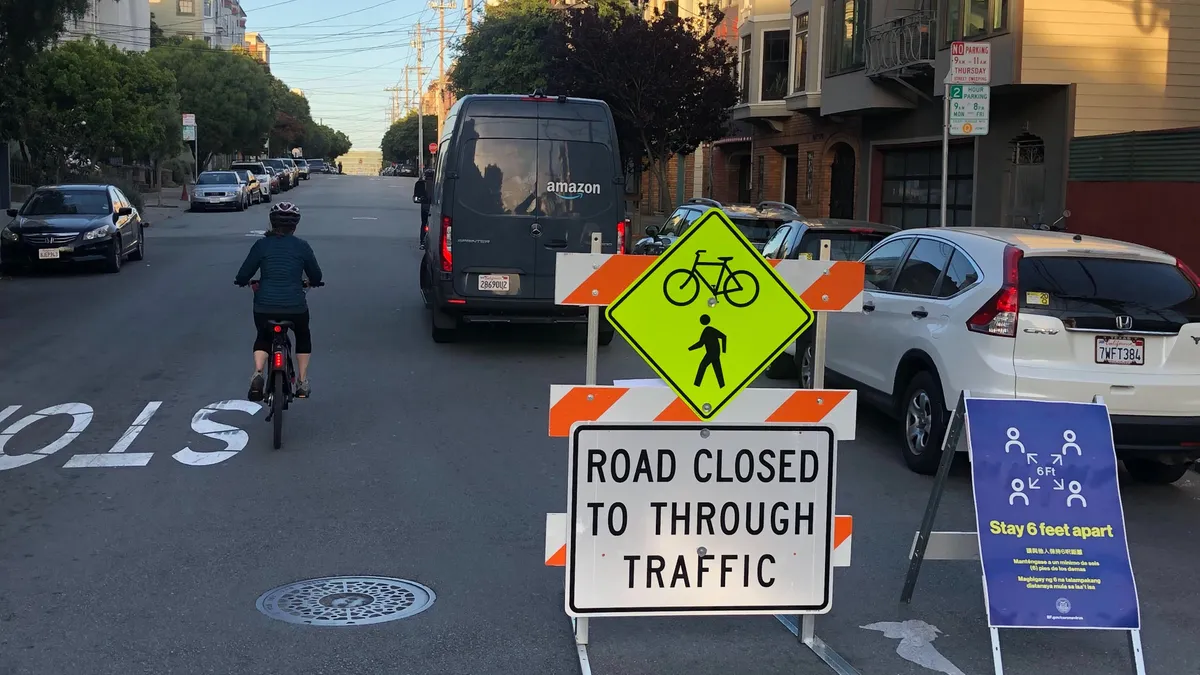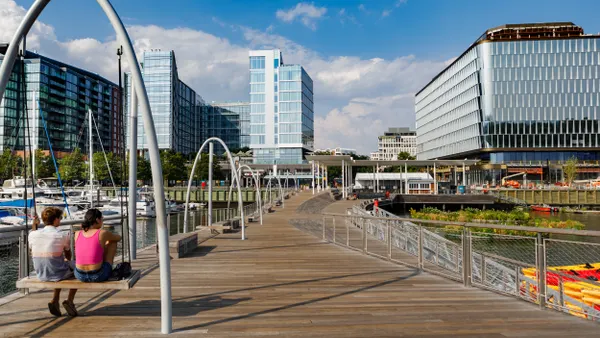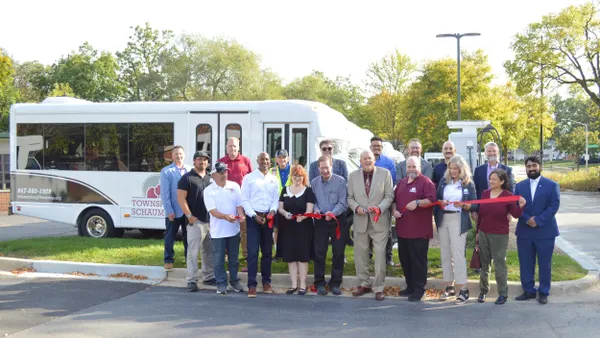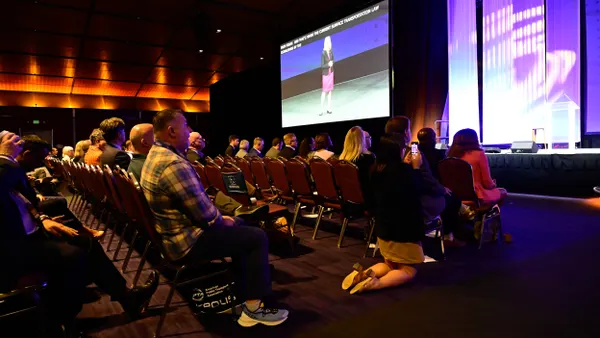UPDATED, July 9, 2020: Mobility technology platform Populus has announced expanded partnerships with a number of global cities to advance its digital Street Manager tool, which can "help their economies reopen safely," the company said in an emailed press release. Cities include New Orleans, Pittsburgh, Cleveland, Orlando, Baltimore, Boston and São José dos Campos, Brazil.
The Street Manager tool can guide cities in identifying new street policies, communicating those policies to the public and providing information to key mobility stakeholders. The platform can assist in efforts like complex curbside pricing models for mobility fleets or creating dedicated spaces for pedestrians.
"The ability for transportation officials to dynamically manage and communicate changes about how their streets should be used is increasingly important as policies change on a day-to-day basis in response to COVID," Populus CEO and Co-founder Regina Clewlow said in a statement.
Dive Brief:
- Populus, a technology platform for cities to manage mobility and transportation demands, launched the Open Streets Initiative to assist select city officials with designing and implementing new street policies, like closures, amid the coronavirus pandemic (COVID-19).
- To complement this effort, Populus launched its Street Manager to help city leaders facilitate and communicate open streets and temporary street closures, construction activity, special events and more.
- Only a select number of cities and public agencies will be given access to the platforms. The Open Streets Initiative will accept applications until May 15.
Dive Insight:
Transportation planners and public officials have used Populus’ platform to access data from micromobility companies like Spin, Bird and Uber, and to create data-driven strategies to effectively manage their streets, sidewalks and curbs. Baltimore and Buenos Aires, for example, have used the technology to manage and share mobility policies.
Street policy management has taken on a new sense of urgency for cities during the coronavirus pandemic as local leaders adjust to new traffic patterns and work to keep pedestrians and cyclists safe.
Changes to mass transit service are among the top challenges for transportation planners, according to Populus CEO and co-founder Regina Clewlow. As public transit service becomes potentially less reliable, city leaders need to ensure alternative modes of transportation — like micromobility — are safe for residents or essential workers to move throughout the city, she told Smart Cities Dive.
Tactical urbanism initiatives like widened sidewalks, pop-up bike lanes or closed-off streets can help reinforce that safety.
Cities including Boston, Philadelphia, Minneapolis and Oakland, CA have opened their streets to pedestrians and cyclists since the pandemic began. Other cities like Washington, DC are widening their sidewalks to create more space between pedestrians. And New Zealand recently became the first country to offer cities 90% funding for tactical urbanism projects like temporary bike lanes or widened sidewalks.
Prior to the pandemic, construction or special events were two of the main causes for a street closure, according to Clewlow. There was an application process, a review period and various communications about the closures to the general public, she said. Now, cities are moving at much a quicker pace to make these changes.
Many cities are taking their "Sunday streets" programs and transitioning them to function every day of the week, she said. In Oakland, for example, many of the city's current street closures are based on pre-existing plans, Clewlow said.
There are some silver linings to the changes in mobility caused by the coronavirus. Some of the potential benefits include the improved air quality and reduced emissions due to less traffic and congestion. However, public transportation systems are facing daunting challenges.
As of April 13, 45% of public transit agencies had eliminated fares. And as of Tuesday, nearly 70 New York Metropolitan Transportation Authority (MTA) workers have died from COVID-19 complications, while at least 2,400 workers have tested positive for the virus, The Guardian reports.
"The world that we lived in two months ago is not coming back," Jarrett Walker, president of Jarrett Walker + Associates and author of Human Transit, said in a webinar held earlier this month. "Whatever is on the other side of this pandemic is a different world."
There's also concern that city residents might shift back to using cars due to personal safety concerns, Clewlow said. But the rapid changes to streets to keep residents safe, could help deter people from gravitating toward cars.
"How we allocate space on our streets is the most effective tool cities have for shifting transportation behaviors," she said.
To keep up with all of our coverage on how the new coronavirus is impacting U.S. cities, visit our daily tracker.












